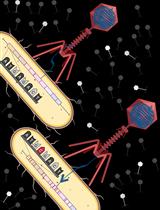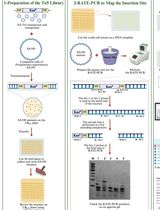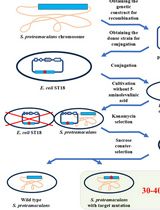Glyphosate, a broad spectrum herbicide widely used in agriculture all over the world, inhibits 5-enolpyruvylshikimate-3-phosphate synthase in the shikimate pathway, and glycine oxidase (GO) has been reported to be able to catalyze the oxidative deamination of various amines and cleave the C-N bond in glyphosate (Pedotti et al., 2009). Here, in an effort to improve the catalytic activity of the glycine oxidase that was cloned from a glyphosate-degrading marine strain of Bacillus cereus (BceGO), we used a bacteriophage T7 lysis-based method for high-throughput screening of oxidase activity and engineered the gene encoding BceGO by directed evolution.













